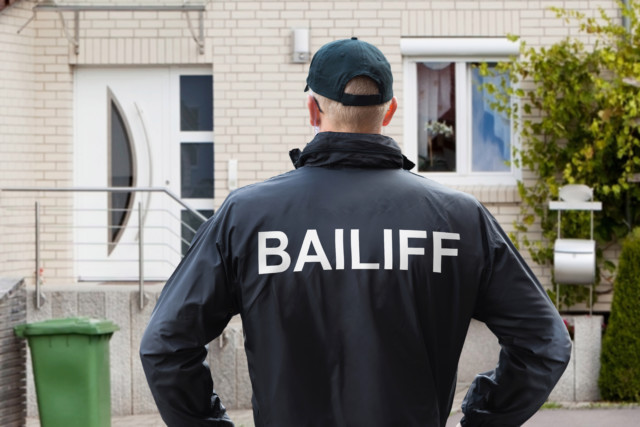BAILIFFS will be able to knock on people’s doors again tomorrow after the coronavirus outbreak temporarily banned visits.
Emergency laws introduced in England and Wales in April put a stop to home visits from bailiffs over fears they wouldn’t follow social distancing rules.
Now they’ve been lifted after lockdown was slowly eased over the past two months.
As of Monday, they’ll be able to approach debtors’ homes over repayments for fines, traffic offences, unpaid council tax and other outstanding penalties.
The guidance has been published by the Ministry of Justice outlines that goods can still be seized during the pandemic.
But the procedure of bailiffs coming to visit people’s homes is now different from before – and there are several rules that they must follow.
1. Bailiffs must socially distance
Enforcement officers have to make “every reasonable effort to maintain social distancing”, so two metres or one metre apart where two metres isn’t possible, during their visits.
They also need to assess the risks of going into the property they’re visiting and work out a way to make the visit in the most socially-distant way possible.
This will include:
• Maintain social distancing as far as possible, including use of appropriate PPE
• Minimise contact with other householders
• Minimise physical contact with surfaces and objects by the enforcement agent, so asking the householder to leave doors open where necessary
• Keep interactions to well-ventilated areas where possible
• Wash or disinfect their hands regularly
2. Leave if someone breaks social distancing or appears to have coronavirus
If someone “deliberately” attempts to breach social distancing or endangers the safety of themselves or the bailiff during the visit, the bailiff has to leave, under the new guidance.
They also should report it to the police, if it’s appropriate to do so, but they will also keep a record of it.
3. They can’t shout or raise their voices
Just like when pubs reopened and banning singing and shouting was discussed by Whitehall sources, bailiffs have to avoid raising their voices during the visit as this spreads coronavirus.
Instead they have to speak in normal tones while maintaining social distancing.








